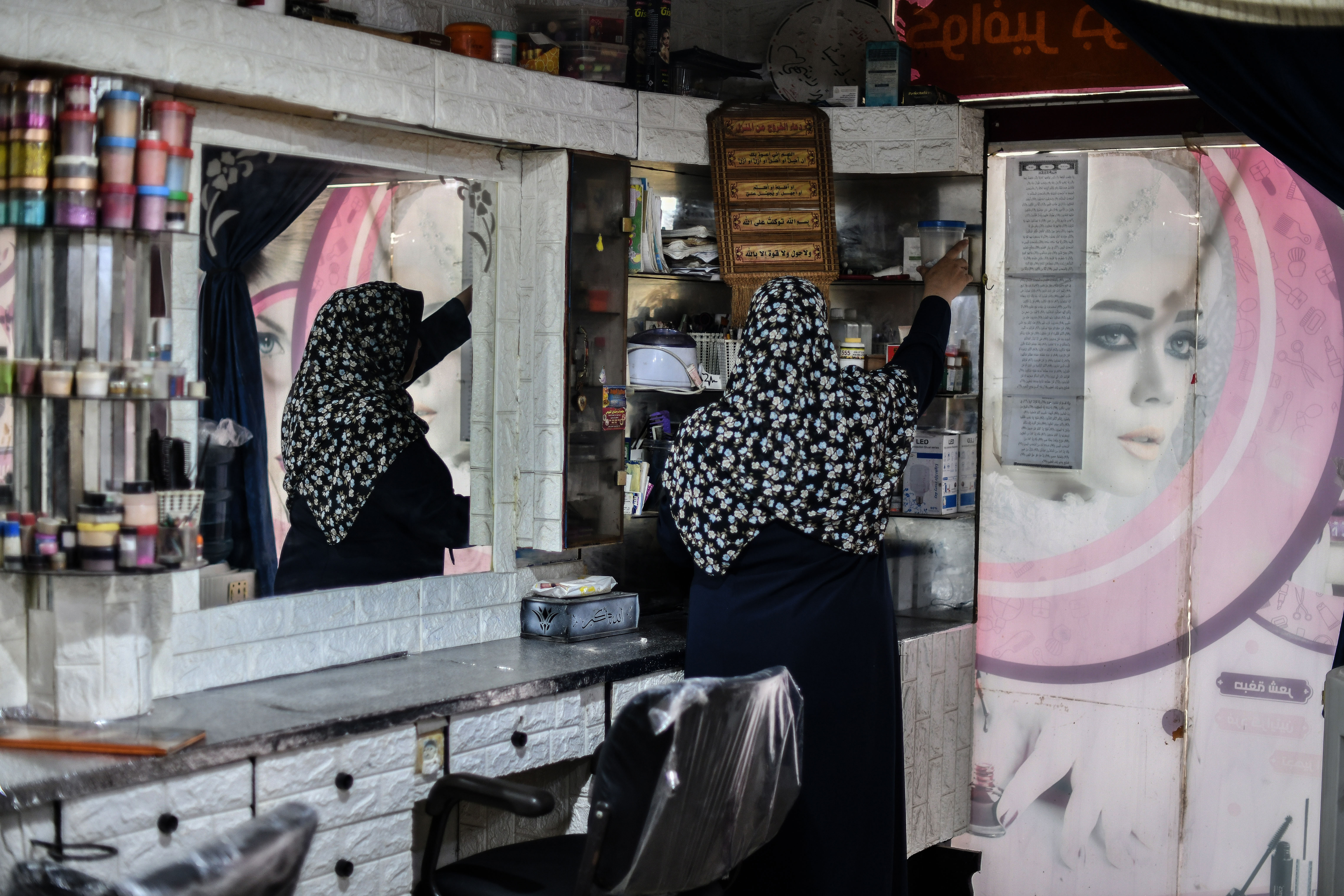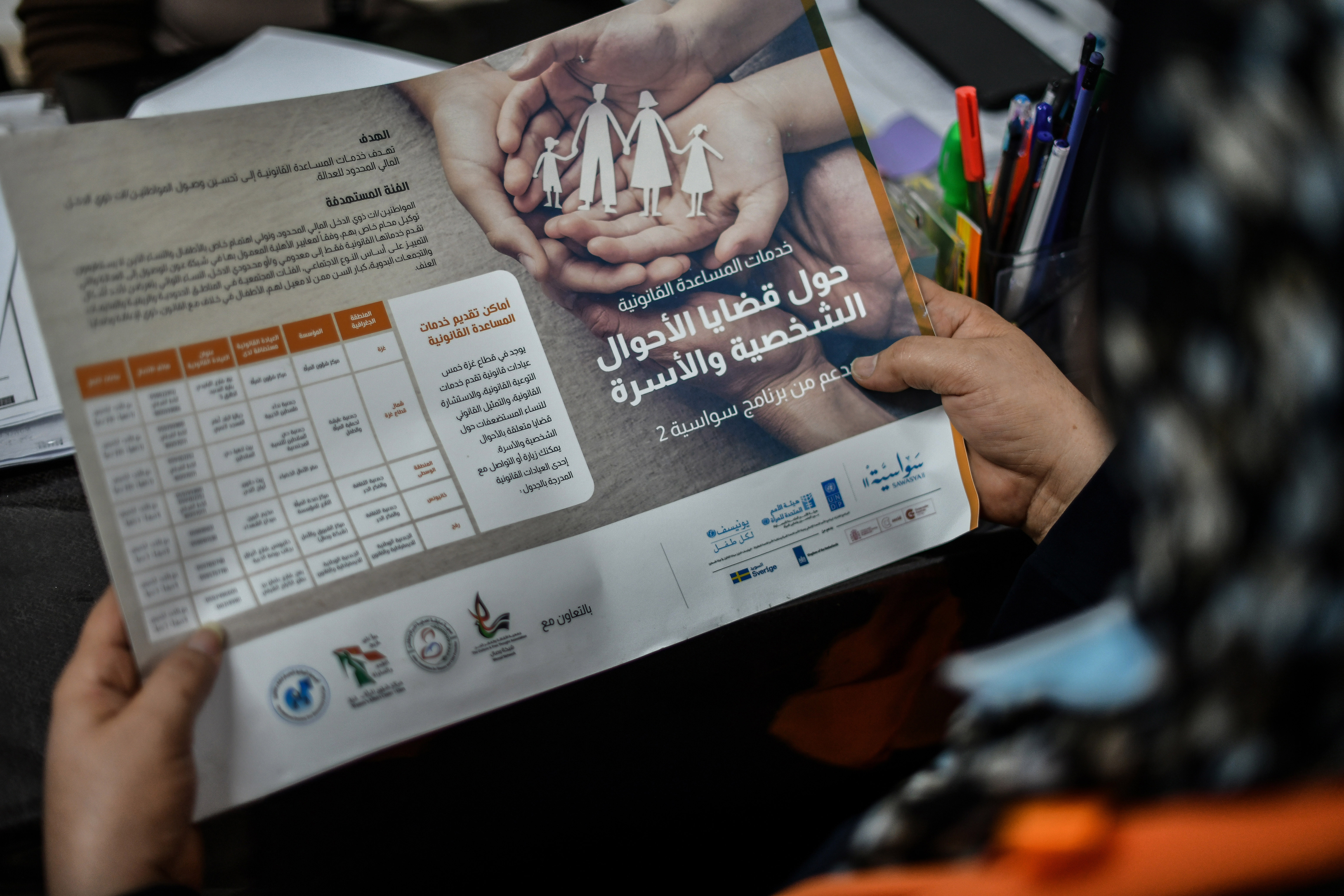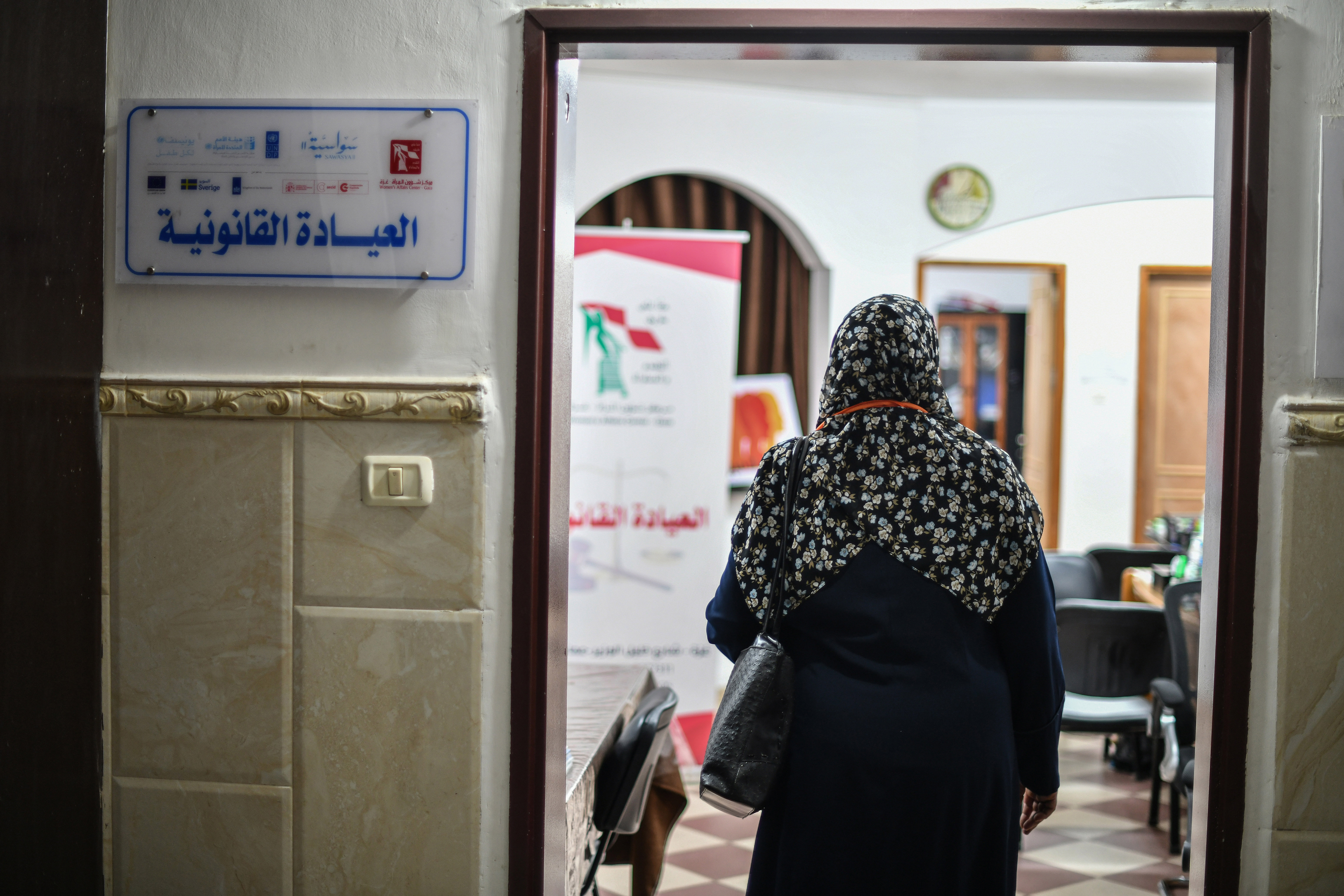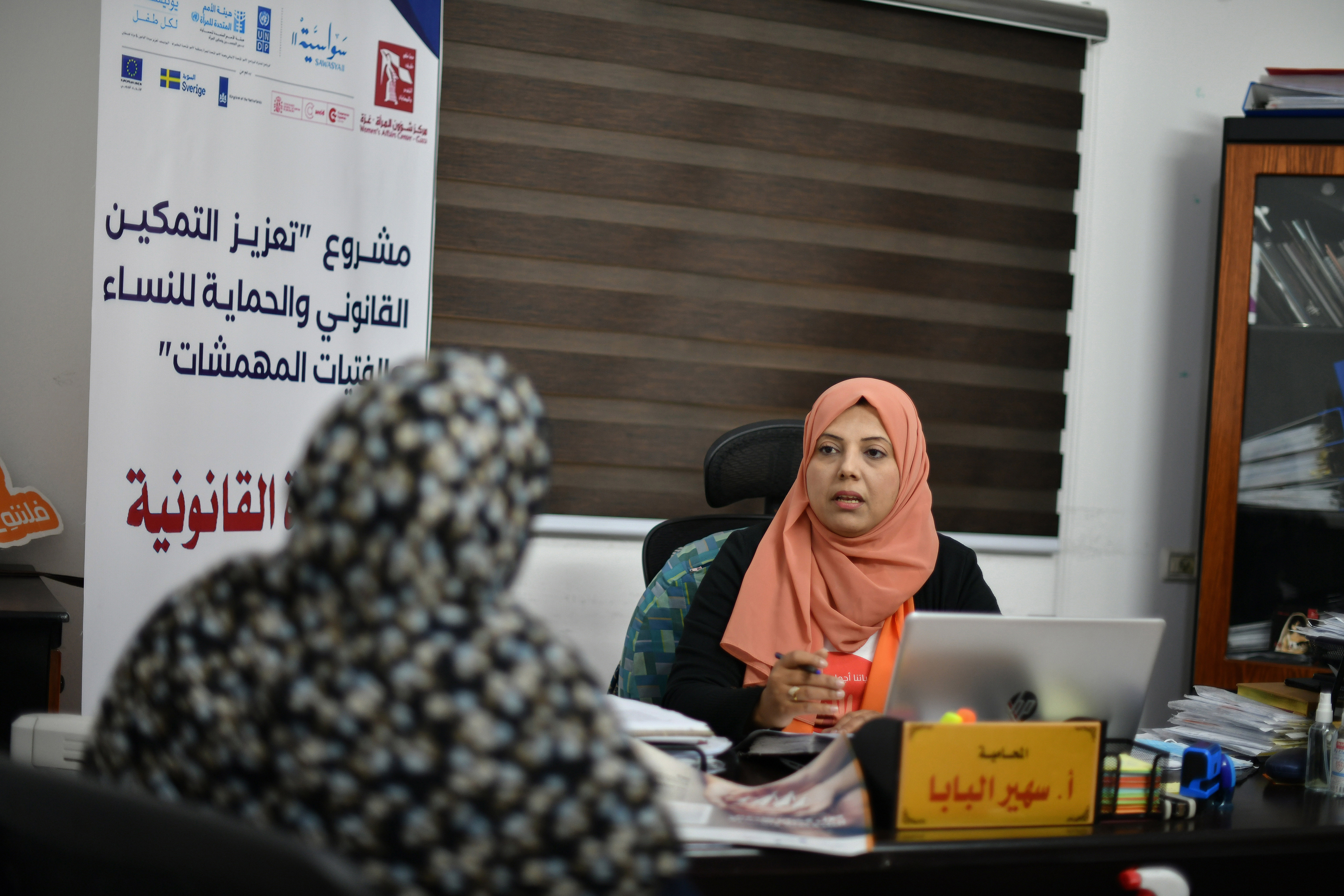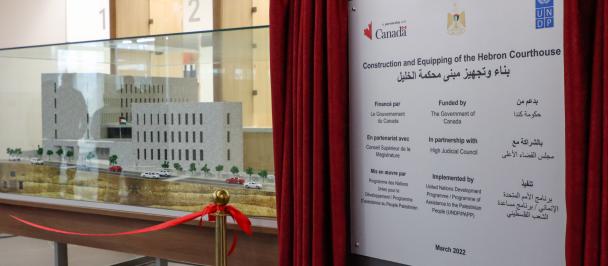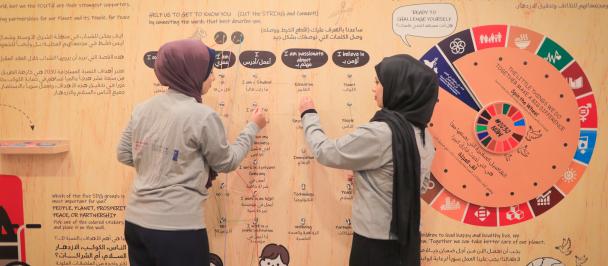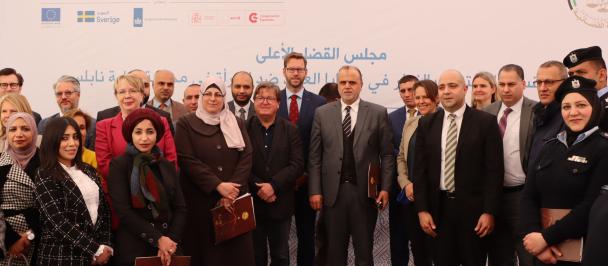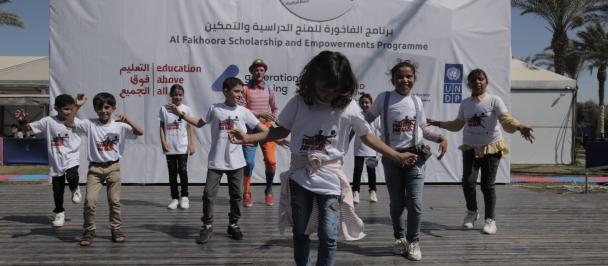Alaa from Gaza starts her day by making sure that everything is on point before the hair salon's opening hours. ©UNDP / PAPP – Abed Zaqout
In a small beauty salon, Alaa, a 49-year-old woman from Gaza starts her day by making sure that everything is on point before opening hours – hair dryers in place, towels clean, make up organized and instruments sterilized.
Alaa took a leap of faith when she opened her own business. She was married twice and was subjected to countless violations during her two marriages. “I ended up alone, sad, trying to regain some of what I lost over the past 32 years of my life,” Alaa said.
“I was married to my first husband and travelled to Saudi Arabia to live there when I was only 17. I did not finish my education and had no resources,” Alaa explains. “He was a good man. We had three children, but his personality was not strong enough to protect me from his controlling family. “I spent 12 years of my life there with no sense of hope – just inferiority and constant psychological violations”. Alaa made the decision to leave Saudi Arabia and go back to Gaza based on a promise by her husband to have her children visit her every summer and talk to them on daily basis.
Alaa tried everything possible to talk to them, she even travelled back to Saudi Arabia to meet them and perform Umra. She was only allowed to see them for 15 minutes. “It took me 15 years to talk to them again. They are adults now - 25, 26, and 28. My ex-husband died five years ago, and we talk regularly now”.
After the first marriage failed, Alaa continued to work in her beauty salon. She had one of the most successful businesses in her area, generating a monthly income of no less than US$ 4,000. She met her second husband and got married. She thought this time it would be different, and she can start a new life full of love and understanding. Yet, she was surprised with an even worse one.
“I was married to him for 11 years. Eleven years of financial, physical, and emotional consumption and abuse. He destroyed everything I built. I was alone, depressed, and bankrupt when I decided to ask for a divorce. The divorce decision was the hardest. I was already divorced once before. I thought a lot before taking this decision. In the eyes of society, there must be something wrong with me getting divorced twice”.
According to the Palestinian Central Bureau of Statistics, almost 30% of women who were married or still married were exposed to one form of violence for at least one time in their life. Around 41% of women in the State of Palestine between the ages 18-64 are subjected to financial violence throughout their life, either by being deprived of controlling their properties, salaries or not being allowed to work and gain income.
Alaa’s second husband forced her to sell her property to buy him a car so that he can work as a taxi driver. He changed three cars during their marriage due to his careless approach. She even had to sell her gold to cover his expenses until finally, her family were also angry with him. “I lost my money, property and my family because of this marriage. Now my business is not doing well because he ruined my reputation. I was lost, I did not know what to do until I found out about the legal aid clinic.”
Alaa became aware of the legal aid clinic from one of her clients. She immediately visited the clinic at the Women’s Affairs Centre; one of the legal aid clinics supported by the Sawasya II Joint Programme in the Gaza Strip.
The Sawasya II UNDP/UNWOMEN/UNICEF Joint Programme: Promoting the Rule of Law in the State of Palestine represents the primary programmatic vehicle of the United Nations for advancing the rule of law, gender justice and human rights in the State of Palestine for the period 2018 - 2023. Bringing together the main UN entities mandated and invested in
these areas - UNDP, UNWomen and UNICEF - in an integrated programme framework, Sawasya II seeks to support the Palestinian government in building a progressively functioning and increasingly inclusive rule of law system that respects, protects, and fulfils human rights and gender equality and promotes peace and security.
The legal aid clinic took on Alaa’s case eight months ago. She was referred to psychosocial support services as a first step to allow her to open up about the psychological impact of the situation on her. The lawyer then filed lawsuits for alimony and a travel ban was imposed on her husband for him not to escape the court. Three months later, she received alimony of JOD 50 per month as a first step. “I felt victorious when he paid me the alimony. He used to tell me that he will not pay me a single shekel. But I won the first case. I am renovating my salon and will work on reviving it”. Alaa was also referred to another clinic at the Palestinian Lawyers Syndicate where they also filed a property lawsuit for her gold and the case is still ongoing.
“When I went to the legal clinic for the first time, I was crying walking in. I did not know what to do, they gave me hope and strength. In the past, I was known as a strong woman but during my marriages, especially the second one, I lost much of my inner power. Thanks to all the support I received, I am proving to myself that I can be strong again and I will continue the fight until I get what I lost, including myself”.
Sawasya II, through a firmly established partnership with an integrated network of legal aid providers, ensures that the farthest left behind can access the Family and ordinary court systems and have their rights safeguarded. This support has proved particularly critical in ensuring that women with limited financial means can claim their rights - particularly in cases of divorce, custody, maintenance, and inheritance – and that children in conflict with the law access fair trial and alternative pathways to detention.
Funded by the Governments of the Netherlands, Sweden, Spain, and the EU the Sawasya II Joint Programme provided legal aid services, including for COVID-19 response, to over 11,500 Palestinians (75% women, 6% boys, 0.5% girls) in 2021 alone.

 Locations
Locations